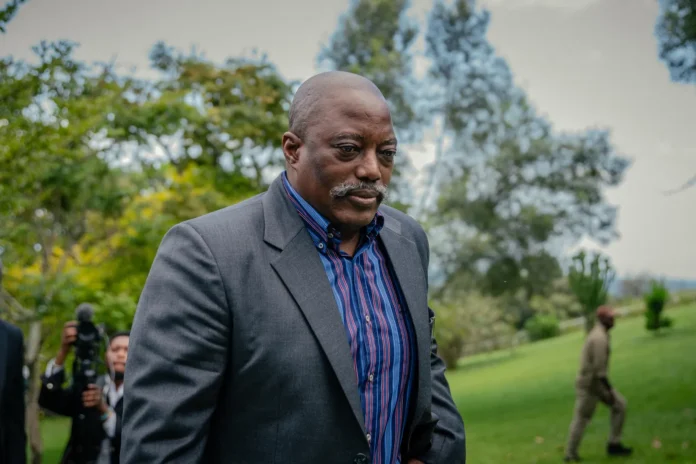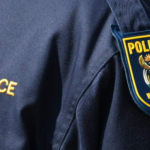KINSHASA — A military prosecutor in the Democratic Republic of Congo (DRC) has demanded the death penalty for former President Joseph Kabila, who is being tried in absentia on charges of treason and war crimes. The trial, which began in July, centres around Kabila’s alleged support for the Rwanda-backed M23 rebels, who have seized significant portions of the mineral-rich eastern DRC this year.
General Lucien Rene Likulia, the Congolese military auditor general, formally requested the death penalty from the military court on Friday. He cited a litany of charges against Kabila, including homicide, torture, rape, and organising an insurrection. In addition to the death penalty, the prosecution is seeking a 20-year sentence for Kabila's alleged condoning of war crimes and 15 years for conspiracy, though General Likulia did not elaborate on these additional charges.
The charges stem from Kabila's alleged support for the M23 rebel group, which has been accused of forcibly occupying the city of Goma in January before agreeing to a ceasefire with the government in July. The charge sheet also accuses Kabila of plotting to overthrow current President Felix Tshisekedi.
Kabila, who has been outside the DRC for two years, has denounced the trial, dismissing the courts as "an instrument of oppression". Ferdinand Kambere, Kabila’s political party secretary, echoed this sentiment, telling Reuters that the trial is "an act of relentlessness and persecution against a member of the opposition."
Henry-Pacifique Mayala, a researcher and coordinator of the Kivu Security Tracker, suggested the prosecution’s demands seemed to be “more of a settling of scores session than a quest for truth.”
Kabila served as President of the DRC for nearly two decades, from 2001 to 2019. He assumed office at the age of 29 following the assassination of his father, then-President Laurent Kabila. After his term ended in 2017, he extended his mandate by delaying elections for two years. He handed power to President Félix Tshisekedi following a disputed election in 2019, but they later fell out.
In May, Congo's senate voted to lift Kabila's immunity from prosecution. He had been living outside the country for two years, but arrived in the rebel-held city of Goma, in eastern DR Congo, from self-imposed exile in South Africa in May.
Kabila's successor, President Félix Tshisekedi, has accused him of being the brains behind the rebels.
The ex-president has rejected the case as "arbitrary" and said the courts were being used as an "instrument of oppression".
In a now-deleted YouTube video released in May, Kabila lashed out at the Congolese government calling it a "dictatorship", and said there was a "decline of democracy" in the country.
At the time the Congolese government spokesperson, Patrick Muyaya, rejected Kabila's allegations, saying he had "nothing to offer the country".
Following several hours, Friday's trial was adjourned to the end of the month, following a request by prosecutors for extra time to review documents.
A ceasefire deal between the rebels and the government was agreed last week, but fighting has continued.
Kabila had been living outside the country for two years, but arrived in the rebel-held city of Goma, in eastern DR Congo, from self-imposed exile in South Africa in May.
Pointing to overwhelming evidence, the UN and several Western countries have accused neighbouring Rwanda of backing the M23, and sending thousands of its soldiers into DR Congo. But Kigali denies the charges, saying it is acting to stop the conflict from spilling over onto its territory.
Former presidents in DR Congo serve as senators for life and enjoy lifetime immunity.
But in May, Kabila's fellow senators stripped his immunity to allow his prosecution on charges that include torture, taking part in an insurrectionist movement, and the forcible occupation of Goma.
According to the AFP news agency, the charge sheet describes Kabila as "one of the initiators of the Congo River Alliance" – the wider rebel grouping which includes the M23 and other militia.
Kabila has been accused of conspiring with Rwanda to remove President Tshisekedi from power. Both parties deny this.
In anger at Friday's trial, Ferdinand Kambere – a close ally of Kabila who served in his now-banned PPRD party, accused the government of "double standards". He said it was too soft in its peace deal but too hard on Kabila, adding that the trial was a way to exclude Kabila from the country's politics.
Another Kabila stalwart – Emmanuel Ramazani Shadary – reportedly said a guilty verdict was a forgone conclusion and that the trial was little more than "theatre".
But as the trial opened, Congolese Deputy Justice Minister Samuel Mbemba had stern words for any detractors.
"Justice does not negotiate, it does not join in dialogue. The calendar for justice is different from the political calendar."
The DRC lifted a moratorium on the death penalty last year, but no judicial executions have been carried out since.
No date has been set for the announcement of the verdict.
As the trial unfolds, the political atmosphere in the DRC remains tense. The outcome of this case could have significant implications for the country's stability and its relations with neighbouring Rwanda.

Follow Us on Twitter











